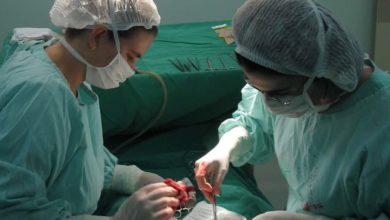Welcome to PDr’s Weekly Weigh-in! Each week, we ask medical students and physicians to weigh in on some of our most frequently asked pre-med questions.
This week’s question: What were your biggest hesitations in choosing medicine? What do you think are important things to consider before committing to medicine?
Brandon Brown, UCSF MS2
My biggest hesitation in choosing medicine was the time investment. I knew med school would take 4 years, and residency would take anywhere from 3 to 7 depending on the specialty. For some reason when I was in college, the time course of becoming a doctor (potentially up to 11 years or more) didn’t really bother me. Probably because I was already in school and college was fun so I just thought, “well this isn’t so bad, I could do something like this for another 11 years.” Now that I’m in med school, time definitely feels more real. When many of my other friends are out in the real world making money and having real adult lives, I’m still studying for tests, living off free meal coupons for munchery, and going deeper in debt every day. 11 years seems very, very long now. Sometimes, when the going gets tough, you can doubt your choice, but I think there are enough small victories and glimpses of how awesome medicine can really be to keep me going.
Nevertheless, the time investment is serious. Medicine really takes over your life and limits your freedom for a long time. Not to mention, if you have other hobbies or interests, it can be difficult to keep those going. I definitely strongly encourage those interested in pursuing medicine to deeply consider how big an investment medical training is. If you think you can be just as happy in another career, then do that. But if medicine is your passion, then it might be worth the investment.
|| Read: WWI: Choosing Your Path to Medicine ||
Edward Chang, DGSOM MS3
My biggest hesitation in choosing medicine was that I had many interests outside of medicine. In college, I strongly considered switching into a career that is not medically related at all. Many of the qualities that will make you a successful doctor are helpful in many careers. Doctors are supposed to be intelligent, diligent, and compassionate people who know how to work on a team. I’m sure many doctors would make great businessmen, lawyers, bankers, computer programmers, clergymen, social workers, etc. Nevertheless although I have many interests outside of medicine, I can’t imagine pursuing any other field for the rest of my life. Being a physician allows you to use mind-boggling science and interpersonal/technical skills to help people in their time of dire need. I don’t anticipate any career being more rewarding than medicine, which is why despite the temptations of many other careers that are wonderful as well, I stuck to a career in medicine.
Evan Shih, DGSOM MS3
One of the most important things to consider before committing to medical school and a career in healthcare is the changes in lifestyle during your early 20s and beyond. Pursuing an MD or DO degree requires a great deal of sacrifice, including 6 figures of debt, sleepless nights in call rooms, time away from loved ones, and possibly putting other life goals on hold such as starting a family or buying a home. Medicine, unlike other fields such as engineering or finance, asks for another 4 years of school (which costs $278,455 on average for a private 4-year medical education according to the AMA), in addition to 3-7 years of residency. I’ll let you do the math.
I think it’s important to really evaluate your values in life. For example:
Do you aspire to spend your 20s traveling the world and experiencing new cultures?
Do you want to buy that nice shiny BMW when you’re 26?
Do you foresee being able to pick your kids up from school everyday?
Do you plan to pay off your student loans within a few years?
Now, that’s not to say if you choose to pursue a life of medicine, that you can’t answer yes to the above questions. However, there are many other careers that can make it much easier on your lifestyle so that you can continue to adhere to those values.
On the other hand, medicine has plenty of redeeming qualities as well, which ultimately kept many of my colleagues and me on the path to and through medical school. The reward of helping those in the greatest need, the excitement of a dynamic field, the security of a stable career, the comfort of being able to care for loved ones, and the joys of connecting with patients are all incredible qualities that make the sacrifice worth it, and why I ultimately decided to apply.
|| Read: Why Medicine? ||
Evan Laveman, DGSOM MS3
One of my biggest hesitations with choosing medicine was whether the perceived “spirit” of medicine would translate into a fulfilling lifelong job. After enough time, a lot of jobs succumb to the same sculpting factors- work gets hard, emotional storage runs low, money becomes more important, and family interests and self-interests start to chip away at the service minded physician. I think part of my struggle with committing to medicine was generating enough faith in my decision. I felt like I needed to believe that no matter what pressures, influences, and realities I faced along the path to medicine, that I could maintain the constitution and perspective to contribute to the field in a positive and empathetic way. Part of the hesitation, of course, is that you realize that you may change throughout your career, and I didn’t want to end up practicing medicine in a way that didn’t fulfill the soulful drive that launched me on my journey.
Important things to consider:
Are you okay with being financially unstable during your 20’s/30’s?
Are you okay with rigorous time demands that your training will take?
Are you okay with the field likely being different by the time you’re an autonomous doctor?
The road to MD is nothing that can be predicted before you have actually done it. There is no way to prepare for whatever reality is born from your “dream” to become a doctor, you have to create the fixture in that path of uncertainty. That fixture is what you will carry with you throughout your training, and until I had mine, I was hesitant to take that plunge into medicine.
Emily Singer, DGSOM MS3
My biggest hesitation was fear of coming to the profession by default. Both of my parents are doctors, and I knew that I had to be really sure that the career was my choice rather than a predetermined path. Surprisingly, there was no pressure from either of them – in fact, they encouraged me to find a career outside of medicine. I spend 3 years after graduating trying to convince myself that I would be happy contributing to human health by being a policy analyst, drug developer, or entrepreneur. But none of these fit, and as each year went by and I still felt unfulfilled, my hesitation to pursue medicine diminished. During that time I also began reading articles by physicians, patient blogs, and books about medicine and medical history. Finally, I gave in to the fact that medicine was a passion and realized that I did not need to so actively resist just because it might appear that I was only following in my parents’ footsteps. I am lucky to have them as sounding boards as I go through my training, and lucky that my hesitation finally gave way.



